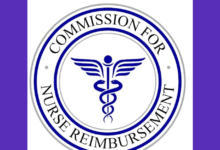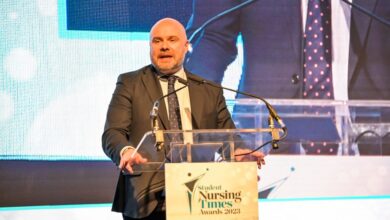New guidance for nurses on terminal illness benefits

The Scottish Government has published new guidance on how nurses can support terminally ill patients to get financial help.
The guidance, issued by Scotland’s chief medical officer and endorsed by the chief nursing officer, sets out what nurses and doctors should consider to ensure terminally ill patients get fast access to the disability benefits they are entitled to.
“Having a terminal illness can place a huge financial burden on people and can plunge them into poverty”
Amy Dalrymple
In Scotland, people who are terminally ill are entitled to the highest rates of adult disability payment and child disability payment.
They can apply under a ‘special rules process’ which fast tracks their application as soon as a nurse or doctor fills out a benefits assessment for special rules in Scotland (BASRiS) form, which confirms they have a terminal illness.
A decision can take as little as 48 hours, provided that the form has been completed correctly and by a clinician.
The guidance has been updated because responsibility for disability benefits was recently transferred from the UK Government’s Department for Work and Pensions (DWP) to Social Security Scotland, an executive agency of the Scottish Government.
As such, Scotland has now implemented different eligibility criteria.
The DWP regards someone as eligible for fast-tracked benefits if they are expected to die within a year, whereas Social Security Scotland no longer requires this fixed life expectancy.
To meet the definition in Scotland, the person should have an illness:
- that is advanced and progressive or with the risk of sudden death and;
- that is not amenable to curative treatment, or treatment is refused or declined by the patient for any reason and;
- that is leading to an increased need for additional care and support.
This definition of terminal illness includes all diseases and conditions that are judged by a clinician to be terminal.
Due to the recent changes, registered nurses no longer need to estimate how long a patient has left to live to fill out the forms, and instead can use their clinical judgement to decide whether the illness is terminal.
Social Security Scotland said removing this barrier meant people who are terminally ill could receive the support they are entitled to as soon as possible, and for as long as they need.
It urged nurses to continue to complete the BASRiS form for any patient who is terminally ill and who is applying for disability payment under the special rules.
Stephanie McGibbon, a registered nurse who works with Social Security Scotland, said: “As healthcare professionals working within Social Security Scotland, we are proud to support and promote the new guidance and believe that it enables every health professional who supports a terminally ill person to proactively provide the information required to enable prompt payment which is our main objective.”
Meanwhile, the associate director of Scotland policy and public affairs at Marie Curie, Amy Dalrymple, welcomed the guidance.
She said: “Having a terminal illness can place a huge financial burden on people and can plunge them into – or even further into – poverty simply for being too unwell to work.
“Far too often we hear harrowing stories people have faced when dealing with financial insecurity.
“We hope the publication of this new guidance will lead to greater awareness and clarity among nurses, GPs and other professionals about their role in making sure people receive financial support at end of life, and lead to more people getting the support they need.”







